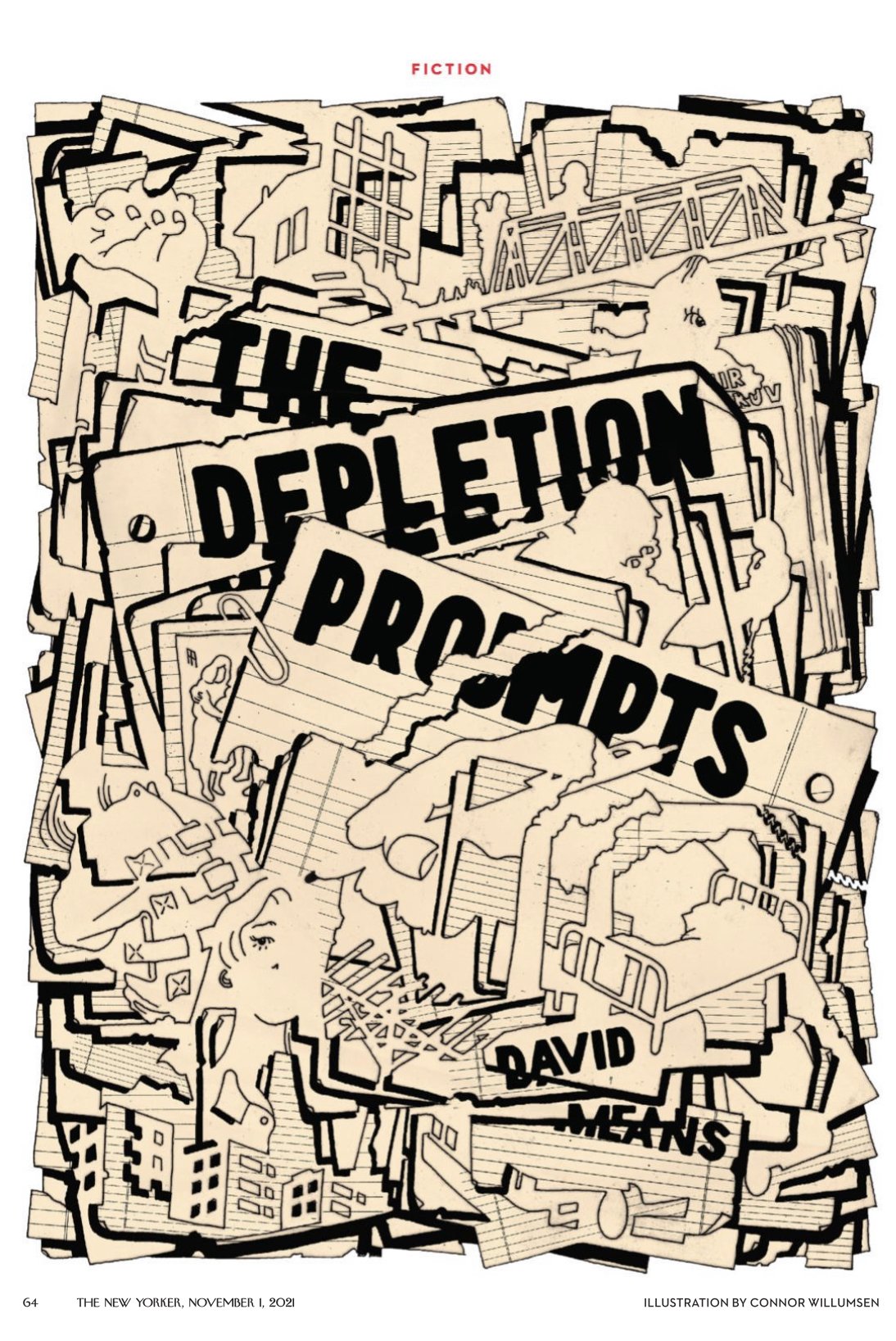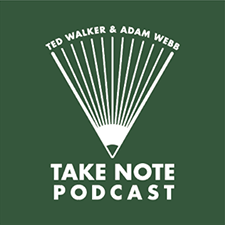Morning reading: The depletion prompts

Adam discovers a new David Means story.
My favorite short story writer, David Means, published “The Depletion Prompts” in this week’s New Yorker.
I discovered Means from a short, compelling NYT review of his collection Assorted Fire Events in 2000. In 2003 he published “Elyria Man” in McSweeney’s 11 and I was very excited that my literary interests were overlapping. The following year I sent a few people photocopies of both Means’ “Lightning Man” and Melville’s “Lightning-Rod Man.” I can’t recall whether there was more to that idea beyond the similar titles. Maybe I should reinvestigate.
Around this time I took it upon myself to become the unofficial main editor of David Means’ wikipedia page. I created a list of “Uncollected Short Stories” which I believe should be on every contemporary short story writer’s page. Alas no one ever put me in charge of literary wikipedia.
The new short story is inspired by writing prompts, a relevant subject for me. Interviewed at The New Yorker, Means has this to say about prompts:
Prompts, as far as I know—and I’ve used them in teaching—are usually, paradoxically, highly restrictive and yet strangely vague at the same time. Write an entire life in three hundred words is a good example of one that I’ve used in a class. They’re useful for young writers who are trying to find a way into writing or are learning narrow-bandwidth aspects of writing. But the absurd thing about the prompts this narrator comes up with is that they are so precise that they become the story. What a young writer has to learn is how to make up prompts—again, I like to think of this as finding seeds—that are unique and personal, ones that arrive out of the writer’s own concerns, and then trust in the huge, almost cosmic, ability of the imagination to make stuff.
“The Depletion Prompts” by David Means begins:
Write about that night, long ago, when you lay in bed listening to the sound of wind buzzing through the old television aerial mounted on the porch outside your bedroom—remember the door out to the tin roof, the buckle and ting against your toes—a deeply disturbing sound, like a stuck harmonica reed, one that, combined with the sound of crying drifting up from downstairs through the heater duct, seemed indicative of more troubling harmonics.
David Means often writes about nature in a way that seems far beyond anything I’m capable of in my writing. I was delighted that the story opens with him doing something similar with sound.
Read the story here. If you’re not a subscriber, your library may give you access to the Libby app where you want to download the November 1, 2021 issue. There’s no paywall on The New Yorker podcast The Writer’s Voice where you can listen to David Means reading the story.
UPDATE: Since I’ve been on a Nabokov kick on the blog in the last week, I couldn't let this paragraph/prompt from “The Depletion Prompts” go unshared.
Write about the strange dynamic between the past and the present as the dynamic tries to put itself into words. Write about the failure of language to reclaim pain, and how you tried, again and again, to find a way into the topic like Nabokov did in his story “Signs and Symbols,” about an older couple trying to navigate around their mentally ill son. Steal his story—as others have stolen it—and reframe it and rebuild using his structure. Go fearlessly and take as much as you want and ease the burden of dreaming up your own structure.

